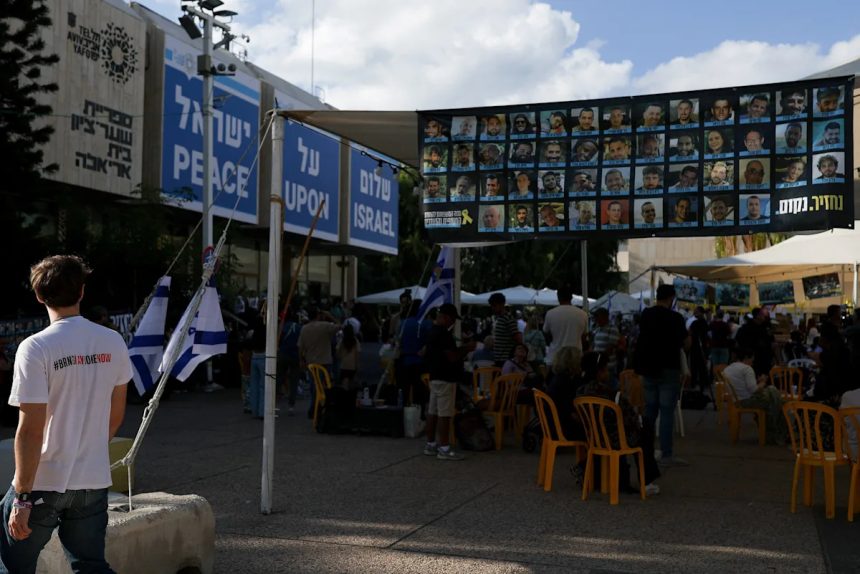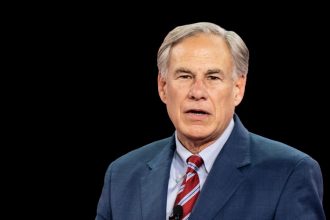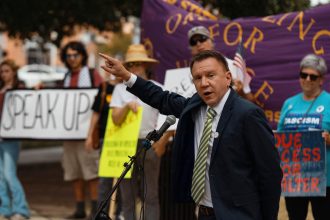Israel says it expects to receive all its remaining living captives from Gaza early on Monday, a key step in the ceasefire now in effect.
Speaking on Sunday, government spokeswoman Shosh Bedrosian said Israel anticipates all 20 living captives will be returned together in the early hours of Monday.
As in previous exchanges during the two-year war, the captives will first be handed over to the Red Cross, which will transport them to an Israeli military base inside Gaza for initial medical checks before they proceed to Israel to reunite with their families.
Once that process is complete, Israel will begin releasing Palestinian prisoners, Bedrosian said. They will be freed “once Israel has confirmation that all of our hostages set to be released tomorrow are across the border into Israel”, she added.
Under the terms of the ceasefire, Israel is to release about 2,000 Palestinians it holds in detention, many without charge. The prisoners include 250 Palestinians serving life sentences. Imprisoned Palestinian leader Marwan Barghouti, whose release Palestinians have long sought, will not be among them, Israel has said. Some detainees will be released in the occupied West Bank, where relatives have been instructed by Israel not to hold celebrations or speak to the media.
Israel is also preparing to receive the bodies of 28 captives confirmed to have died in captivity, Bedrosian said.
A billboard in Tel Avivi shows an image of US President Donald Trump during a ceasefire between Israel and Hamas [Hannah McKay/Reuters]
‘Trump’s show’
The planned exchange comes three days after Israel’s government approved the first phase of a deal aimed at ending the war in Gaza – and just as United States President Donald Trump, who spearheaded the agreement, is to visit Israel before a summit in Egypt.
“It is Trump’s show,” Al Jazeera’s correspondent Nour Odeh said from Amman, Jordan, because the network is banned from Israel. “He will be arriving in Israel, meeting with the families of captives, addressing the Knesset and then going to Egypt’s Sharm el-Sheikh, where he has summoned the leaders of more than 20 countries.”
As part of the Trump-led agreement, Israeli forces have withdrawn from parts of Gaza, including Gaza City and other northern areas, although they still control more than half of its territory.
Palestinians returning to combat zones that they were displaced from have found widespread devastation – “wastelands” where their neighbourhoods once stood, Al Jazeera’s Ibrahim al-Khalili reported from Gaza City.
Humanitarian aid has begun to trickle into the enclave as part of the ceasefire with dozens of trucks arriving on Sunday. But distribution remains slow for a population that has endured months of extreme deprivation, said Al Jazeera correspondent Hind Khoudary.
“People are not waiting only for food but also for tents, mobile shelters, solar panels and desperately needed medical equipment and medicines – items largely unavailable for the past two years,” Khoudary reported from Deir el-Balah in central Gaza. “Most people have lost their savings, have no access to bank accounts and are completely dependent on humanitarian aid to survive.”
Leaders to convene in Egypt
The Gaza summit, scheduled for Monday in Sharm el-Sheikh, will be co-chaired by Trump and Egyptian President Abdel Fattah el-Sisi.
It is expected to be attended by more than a dozen world leaders, including United Nations Secretary-General Antonio Guterres, Jordan’s King Abdullah II and Turkish President Recep Tayyip Erdogan.
Although both Israel and Hamas said they will not participate, Cairo has hailed the summit as a “historic” event that will seek “to end the war in the Gaza Strip, enhance efforts to achieve peace and stability in the Middle East”.
Egypt said a “document ending the war in the Gaza Strip” is also expected to be signed at the summit.
‘Hard work’ to come
Despite the ceasefire progress, many details on phase two of the deal – which is still to be negotiated – need to be ironed out, including the exact makeup of a post-war administration for Gaza and the fate of Hamas.
The second phase is expected to involve a phased Israeli withdrawal, Hamas’s disarmament, the establishment of new security and governance arrangements, and reconstruction.
“After the big day tomorrow for Trump, after the release of the hostages, … then comes the hard work,” Adnan Hayajneh, professor of international relations at the University of Qatar, told Al Jazeera. “If you look at the situation in Gaza, it’s like an earthquake happened. … There’s no government. There’s no schools. There’s nothing there.”
US Vice President JD Vance appeared to acknowledge on Sunday that the road to stability would be difficult. “It is going to take consistent leverage and consistent pressure from the president of the United States on down,” he told US broadcaster CBS.









